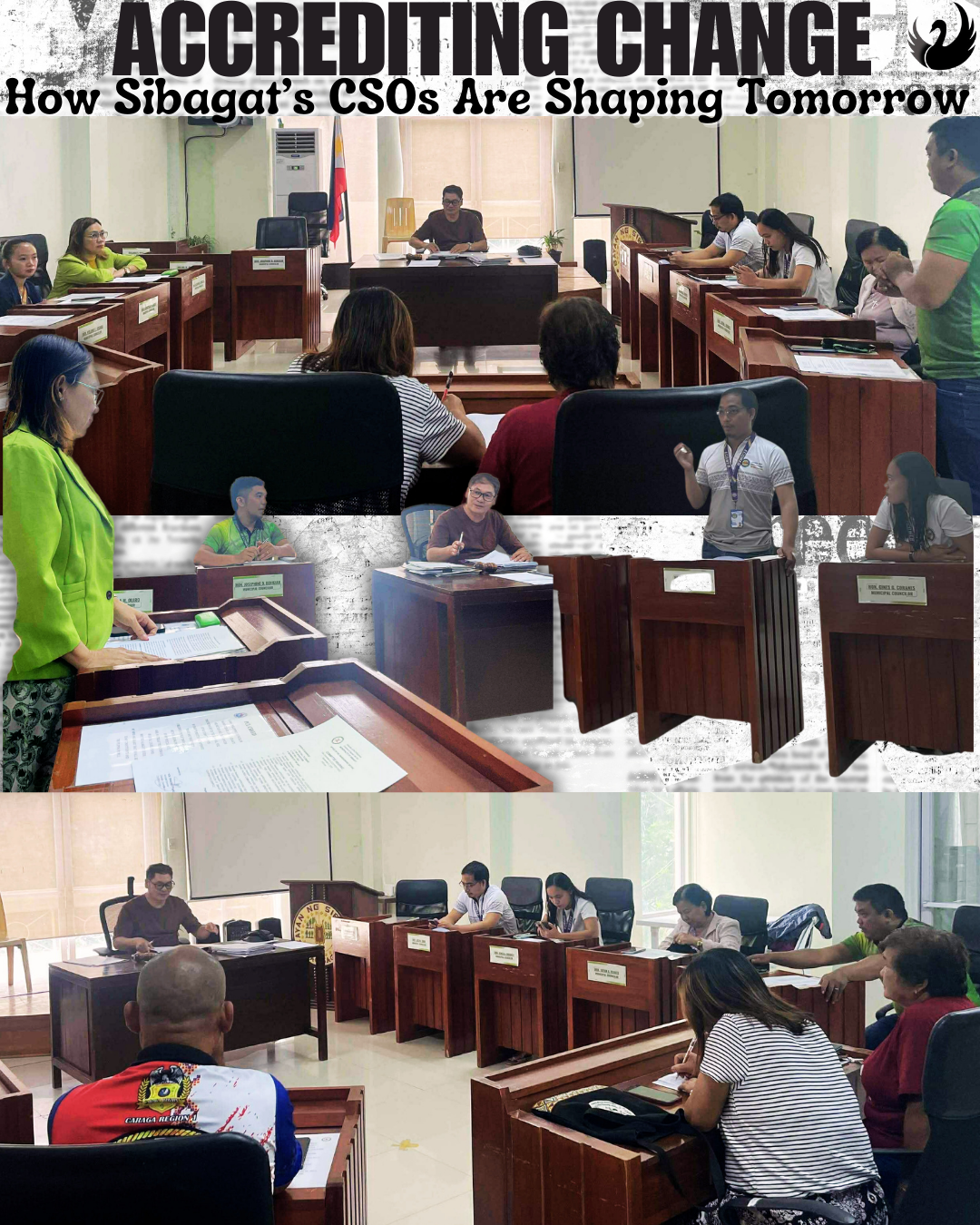In Sibagat, Agusan del Sur, the morning of September 5, 2025, unfolded with the familiar cadence of governance. The Committee on Cooperatives of the Sangguniang Bayan convened at 9:00 AM, its session opening with a call to order, an invocation, and a roll call. Yet beyond the routine of procedure lay something extraordinary: a reaffirmation that community voices matter in shaping the future of local governance.
Presided over by Hon. Francisco Garlit, the hearing carried weighty matters—approving the accreditation and re-accreditation of organizations whose work reaches far beyond their own membership. Among them were household names in Sibagat’s development landscape: the Sibagat Organic Farmers Association (SOFA), ECOWEB, SIFFAMCO, SARBEFCO, Gawad Kalinga, PACTRIDAFA, Ilihan Free Farmers Cooperative, SEMPCO, and Solution Ecosystems Activator, (SEA) Inc.
When it was SEA Inc.’s turn, the room leaned in. Municipal Coordinator Avha Hilario didn’t just present paperwork—she shared a vision. With clarity and conviction, she described SEA’s mission as “activating solution ecosystems”—a phrase that sounds bold, even audacious, but is grounded in years of fieldwork and community trust.
She spoke of New Lucena, Iloilo, where SEA’s IPAT-SIAD program (Integrated Participatory Accountability Participatory towards Sustainable Integrated Area Development) revitalized governance itself. Barangays once dormant had registered and engaged; investment planning had been dusted off and reimagined; policies like the People’s Council Ordinance gave CSOs a stronger legal voice. “This,” Hilario reminded the committee, “is not just about projects. It is about people reclaiming their seat at the table.”
In Sibagat, SEA’s approach is no less ambitious. From Inner Conditioning workshops that begin with personal transformation, to Participatory Rural Appraisal, Appreciative Inquiry, Photovoice, and citizen journalism, SEA is quietly yet decisively building a culture where communities own their development journey. One participant from a previous workshop once quipped, “SEA doesn’t just teach us to farm or plan—it teaches us to see ourselves differently.”
The committee listened, then deliberated. But in truth, the decision seemed inevitable. Organizations like SEA Inc, with their proven track record of transparency, accountability, and inclusivity, embody the very spirit of the Local Government Code of 1991. That law envisioned citizens not as spectators, but as participants in councils that shape health, education, peace, order, and development.
By the session’s close, the resolutions were passed: SOFA accredited; ECOWEB, SEA Inc., SIFFAMCO, SARBEFCO, Gawad Kalinga, PACTRIDAFA, and Ilihan Cooperative re-accredited; SEMPCO’s re-accreditation approved. It was a unanimous endorsement not only of organizations, but of the principle that democracy works best when shared.
This hearing, though procedural on the surface, revealed something profound about Sibagat’s governance: it is not afraid of many voices at the table. As Avha Hilario concluded in her appeal: “We humbly ask for your endorsement to enable our active participation as a civil society representative in the Municipal Local Special Bodies.” That appeal was not just SEA’s request—it was a rallying cry for every cooperative, CSO, and citizen who believes in inclusive governance.
And herein lies the genius of IPAT-SIAD: it doesn’t stop at accreditation. It transforms those accreditations into platforms for genuine collaboration, ensuring that farmers, women’s groups, volunteers, and faith-based organizations aren’t just footnotes in governance, but co-authors of it.
Sibagat’s September 5 hearing was more than a meeting. It was proof that local governance, when infused with participation, becomes less about procedures and more about people. It was, in many ways, a simple act of democracy. But as every transformative story reminds us: simplicity is often the beginning of the profound.
Because when civil society is accredited, the whole community is empowered. And that is where real change begins.





Leave a Reply